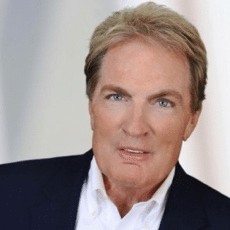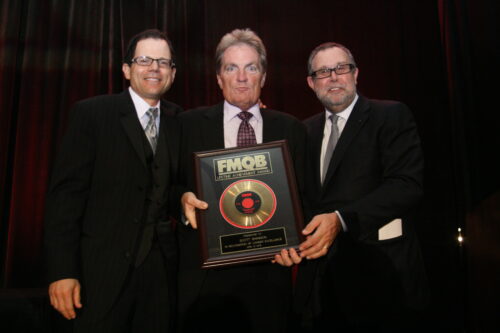
Scott Shannon
February 18, 2022
by Fred Deane

Scott Shannon
Legacy Profile explores the careers of legendary broadcast and music figures in our industry who have made indelible impressions on the business they have dedicated their lives to.
Scott Shannon more than qualifies as one of the most extraordinary radio programmers and air-talents of all-time. An interview with Scott certainly cannot do justice to his richly rewarding and fascinating career, but we’ll try.
I’ve professionally and personally known Scott for over four decades and have cherished our relationship over the years. Among his many endearing qualities is his ability to remain relevant, dedicated and attached to the craft he’s been honing practically his entire life.
Also of note is the recently released (MUST-SEE) “Z100 Worst to First” documentary which amplifies Scott’s influence on one of the most legendary stations of our business.
Sit back, take notes, and enjoy Scott’s story!
Congratulations on the production and release of the brilliant documentary. The history speaks for itself, but can you elaborate on how the project came to fruition?
Anytime I talk about what’s going on in my life and my radio career, people tell me I should write a book. Honestly, I don’t have the patience to write a book. Last year, my wife Trish happened to see a documentary about Long Island radio station WBLI. She thought the story was interesting and said she thought my story would be just as interesting. Why don’t we just do a documentary and save you from writing a book?
I thought that sounded like a lot of work, and Trish responded, no it’s not going to be that much work. They were her famous last words. She did wind up talking me into it.
It was a lot of work and much of it was complicated by COVID. We wanted to interview several people, some of which we could, while others we couldn’t because of the lockdown.
I set up a meeting with my agent, John McConnell, and we decided to find a director capable of producing a marketable product. We found Mitchell Stuart, who had a very good resume and a great history of success in filmmaking. We met and kicked around some of the stories that would form the foundation of the piece. One thing led to another, and we wound up drafting my friend Elvis Duran into the mix and his agent David Katz, who served as Executive Producers.
I wanted Elvis involved because I thought it would be important to link the beginning of Z100 to the current version of Z100. That’s how Tom Poleman wound up in the documentary. Tom was responsible for creating the current version of the brand and Elvis sits in the proverbial seat I sat in at the beginning. He became the “heir to the throne” so to speak. We also had to get Steve Kingston involved since he was the PD in between Tom and I.
Z100’s success factor was certainly seamless over the years as the station evolved through its transitions.
It was a central focus throughout the documentary. One of the themes of the documentary is its powerful longevity. I wanted to ensure that we built a brand with longevity, a brand that would last. A lot of Top 40 stations built in the 80’s turned out to be flashes in the pan. They would do a great job for three to five years and ownership would then bring in another format and another set of call letters and start over again.
My intent was to build a station that would survive, sustain, and continue to be a leading brand in the radio business. Steve, Tom and Elvis are three of the big reasons why it’s still an industry format leader today.
I tried to apply the same principles in designing the documentary that I’ve used throughout my career in building radio stations. It was simple to do the initial stages, I just had to get permission to visit the original building and studios in Secaucus, NJ. I just felt that was an important part of the movie.
I wanted to end it with Elvis on stage at the Z100 Jingle Ball because that has been the signature event of the radio station in recent and current years. I felt there was no better way to show how the station endured through all the changes in ownership, management, and how it survived the evolution of radio over time. It’s still Z100 playing New York’s greatest hits!
You’ve always traced your career back to your childhood. How did you know you wanted to pursue a career in radio?
When I was a kid, I had this fascination with music and radio. If you look at some of the better programmers that have come through the doors of broadcasting in the last 30 years, a large percentage of those men and women grew up as radio fans. My first love was music which I discovered when I was 11 or 12 years old. I was also always curious about everything: how a car runs, how TV works, etc. As a kid in Indianapolis, I remember trying to figure out how a radio in your car (or house) picked up a signal coming from Chicago. How did that Chicago station boom into my house in Indianapolis?
The curiosity and love of music spread to radio, and then I wondered what the people behind the mic looked like and how they did that job.
How did you pursue this interest further in those formative years?
I discovered Billboard Magazine. I would go to the record store and the owner allowed me to read it, and finally when I got a paper route and had some money, I subscribed to it.
I would read “Vox Jox” by Claude Hall and would cut out certain stories about radio personalities around the country. Hit Parader Magazine was another source I subscribed to and it had lyrics to all the Pop songs and information about the artists and songwriters. I ate that stuff up!
I became even more curious about the business but had no idea what went into it, but I had this drive inside of me that prompted a deeper pursuit of knowledge about it.
What attracted you the most about radio personalities that triggered something in a young Scott Shannon that thought he might be able to do the same thing?
In that era of radio, you could tell which disc jockeys actually loved the music, and it just seemed like they shared their passion with listeners I picked that up instantly, and when I first started in radio I was very vocal about my love for music and the artists.
As I was growing up I had some early favorites on the air who I thought were stars on the radio. In my hometown of Indianapolis, I liked Dick Summers and Jay Reynolds. We can also pick up WLS from Chicago where I could hear Larry Lujack and John “Records” Landecker.
Early on I decided that’s what I wanted to do and I started to study what I liked about certain personalities. I admired the guys who let you get to know them, or at least you thought you were getting to know them. Basically, I liked the guys who left deep footprints.
I carried these lessons into my career as a disc jockey and a programmer. It was really that simple.
What was your first radio gig?
My first fulltime job was in Mobile, Alabama working for a guy named Bernie Dittman at WABB. I called myself, “Super Shan the fastest mouth in the south.” Bernie was the first person who I thought loved radio as much as I did. He was a great teacher. I worked for him for two years and loved it.
I made $118 a week, but was in radio heaven. I went on at 7pm but I would get there at 12 noon just to hang out at the station. I tried to learn how to do everything at the radio station including production and even driving the prize-van around.
When I left Mobile, I had a 78-share at night. When Bernie passed away years later, he still had the framed ratings page on the wall of his office. He was as proud of that accomplishment as I was.
Take us to Tennessee.
My next move was to Memphis where I was still Super Shan, still doing 7-midnight. I worked at WMPS, a 10,000-watt station at 680 on the dial that covered three or four states. I loved Memphis because of its music and its rich heritage. I spent a lot of time hanging out at Stax Records with Iassac Hayes and his songwriting partner David Porter.
When I left I was the first Caucasian DJ to be #1 in the market since Dewey Phillips, who was best know at the time as the first jock to play Elvis and interview him back in the mid-50’s. The #1 station in the market was always WDIA, a 50,000-watt R&B giant.
Next stop right down the road, Nashville Tennessee where I spent five years at WMAK. While I was there I was still Super Shan but somehow I turned into a Program Director and that’s where I began my career as a PD. To me it was the obvious next step from being a jock, and I continued as a programmer until eight years ago.
Who were your early influences as a young programmer?
I quickly became a student of the Drake format which I became very focused on. I studied everything I could about Bill Drake and the legendary KHJ in Los Angeles. Next to Guy Zapoleon, I became the biggest fan of KHJ. I had a friend who worked at the station in LA and I would pay him to send me airchecks of Don Steele and Robert W. Morgan, two of the greatest jocks to ever crack a microphone.
What were your next moves after Nashville?
From Nashville, I moved to Atlanta and the legendary WQXI. I was there for two years and worked for the also legendary Jerry Blum.
My next stop was WPGC AM & FM in Washington, DC. That’s where I first met Steve Kingston and hired him to be our Assistant PD. He was working at a day-timer in Annapolis at the time, and I asked him, “How come your station sounds better than mine?” Our partnership and friendship has lasted many years.
Even though we were #1 with an 11-share. PGC was not a good fit for me because the genius GM didn’t think I was a good enough DJ to be on the air.
So, it was off to Tampa, Florida and Q105!
The Tampa story is amazing in it of itself.
That’s where I came up with the first Morning Zoo with the help of a wonderful personality who was already there, Cleveland Wheeler. We had an incredible staff with Cleveland and I doing the Morning Zoo and Mason Dixon doing afternoons. We had an incredibly exciting radio station with a great sales staff and we absolutely dominated the market. We were #1 in every demo from 12 to 55+.
Can you elaborate on Malrite Communications pursuit of you to lure you to New York?
John Lander had interviewed for the Z100 job, and after his interview he called me and asked me why I wouldn’t return their calls. I told him I was happy where I was. He told me that during his entire interview, he kept telling them they should hire Scott Shannon.
I had a great relationship with John and helped him get hired in Houston at the KKBQ Morning Zoo. They were owned by the same company as Q105, and I worked there for two weeks as we made the transition from a News station to a Top 40 with the Zoo format.
So how did the Z100 job become a reality?
I eventually talked to John Chaffey, the President of Malrite Radio, and National Programmer Jim Wood. After approximately five or six phone conversations, I finally agreed to fly up there for a job interview.
I was still torn on leaving Tampa because on top of everything I had just met this young lady (Trish) who would eventually become my wife. I figured if she cared for me as much as I did for her, she would come up to New York with me. She did agree with me if I married her, which I did.
The rest is pretty much radio history. We took a station located in Secaucus, NJ from “Worse to First!” When I arrived there, we were literally ranked #52 in the ratings. We captured the marketplace with some brilliant people, took it by storm, and catapulted it right to the top. It was one of the most memorable, proudest and fun periods of my entire radio career.
As far as I’m concerned, it was a great testimony to what you could accomplish with an incredible staff of talented and passionate individuals when they’re left alone to their jobs.
What thoughts come to mind when assessing the current state of radio and programmers in today’s business environment?
Most programmers are programming three to five stations, some even in different markets. They don’t have the time or staffing to focus on a high-grade quality product. They’re too busy doing jobs that used to be done by other staff members. In many cases, it’s sad how little time is spent with a focus on the product.
In my opinion, I believe if people in management would realize that if you take care of the product, the ratings and revenue aspects come along for the ride.

In 2008, Scott Shannon receives a FMQB Career Achievement award as a Hall-of-Fame Programmer from Fred Deane with Richard Palmese.

